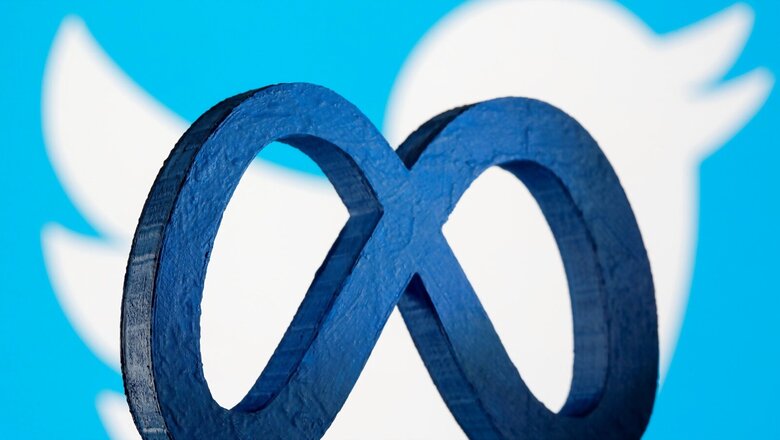
views
Following Twitter’s decision to take the government to the court, the Centre may now ask social media companies why they comply with legal notices in India less frequently than in other developed nations, according to a report.
In preparation for a thorough examination, the Ministry of Electronics and Information Technology is reportedly accumulating comparative reports of the actions taken by “significant social media intermediaries” (SSMIs) both voluntarily and in response to formal notices in India and abroad.
According to an Economic Times report, officials aware of the matter said that since there are many social media users in India, it is only inevitable that there will be a higher “number of objectionable and actionable content”. However, it pointed out that in contrast to other nations, the rate of compliance by the social media intermediaries is “very low”.
The report also stated that at the upcoming meeting between the ministry and the social media platforms, the IT ministry is anticipated to bring up the subject.
Twitter And Facebook
Social media giant Facebook recently released its monthly compliance report in which the Meta Platforms-owned company stated that it “actioned” around 17.5 million pieces of content in India during May across 13 different violation categories.
Facebook also took the step against several content pieces between May 1 and May 31 this year. It has also highlighted the details of the content that has been disabled or removed due to proactive monitoring with automated techniques.
Similarly, according to Twitter’s latest compliance report, the microblogging site stated that it has suspended more than 46,000 accounts belonging to Indian users for breaking its rules between April 26 and May 25 this year. The report noted that 2,870 accounts were banned for inciting terrorism, while the platform terminated 43,656 accounts for child sexual exploitation, non-consensual nudity, and related content.
It also said that Twitter has taken legal action against 1,621 uniform resource locators (URLs), including those that had violated rules against hate speech (362), sensitive adult content (154) and online harassment (1,077).
But later it was reported that fresh troubles have emerged between the government and Twitter as the latter sued the Centre to challenge some of the block orders on tweets, as well as accounts.
Twitter claimed in its case that the government had abused its authority by directing it to arbitrarily and disproportionately remove a number of tweets from its site. The lawsuit was filed at the Karnataka High Court.
Twitter’s petition came after the IT Ministry gave the platform “one last chance” on June 27 this year to comply with all of the IT Rules 2021 by July 4 or face losing its intermediary status.
However, Union IT minister Ashwini Vaishnaw said that the government will hold social media responsible for its content.
“Social media accountability has become a valid question globally. It’s important to hold it accountable, which will first start with self-regulation, then industry regulation, followed by government regulation,” he added.
India IT Rules
Last year, on February 25, India’s new social media regulations went into effect in an effort to hold internet companies more accountable and responsible for the information that their users are permitted to post on their sites.
The government then gave SSMIs three months’ time to comply with the request and said that a substantial social media intermediary would be defined as any social media platform with more than 50 lakh users.
The guidelines require major social media intermediaries, such as WhatsApp, Facebook, and Twitter, to develop methods for tracking the first originator of posts, tweets, and texts within the country.
This means that if any disinformation or fraudulent post goes viral, the government has the authority to question the corporation about the originator of the message, and social media sites are obligated to share the same information with the government.
Additionally, these companies also need intermediaries to appoint Indian citizens to compliance roles (a Chief Compliance Officer, a Nodal Contact Person and a Resident Grievance Officer), develop automated methods for removing pornography and establish mechanisms for responding to complaints.
According to the rules, these complaints must be acknowledged within 24 hours of receipt and addressed within 15 days from the date of receipt. The government also clarified that failure to comply with the laws would subject the platform to legal action.
Noncompliance with the new standards will also result in the platform losing its intermediary status, which protects them from liability for any data shared/hosted on their platform.
However, in the case of compliance, it should be noted that Twitter and Facebook do not completely comply with removal notices from authorities in other countries.
For example, Twitter’s overall compliance rate for legal demands in the first six months of 2021 in India, the US, as well as the UK was 11%, 13% and 7%, respectively, according to its worldwide transparency report.
Meanwhile, it is also noteworthy that Facebook has been largely compliant with governments around the world, with a compliance rate of 88% in the US and 89% in the UK in the second half of 2021, compared to 64% in India.
Read all the Latest News, Breaking News, watch Top Videos and Live TV here.




















Comments
0 comment